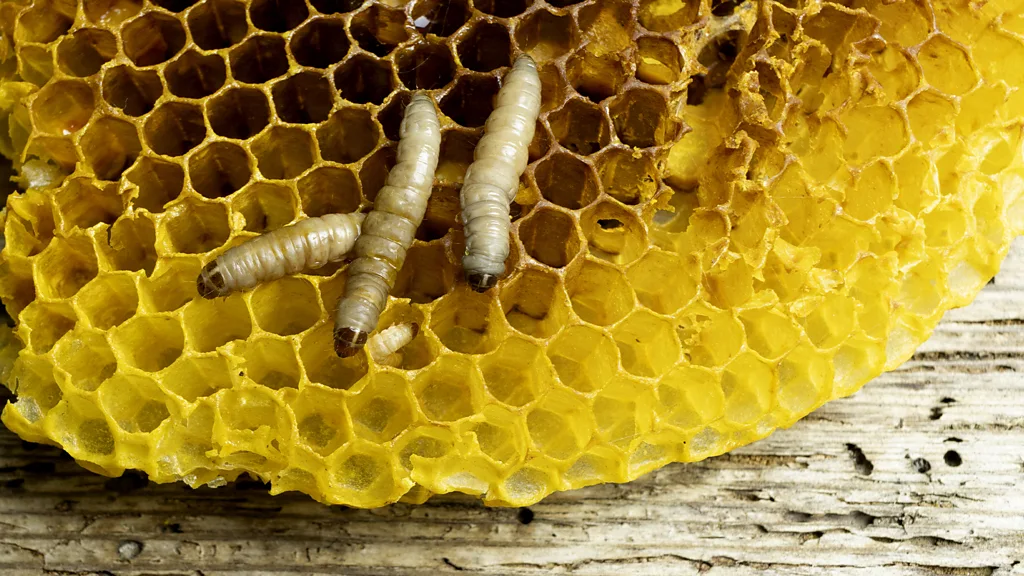At first glance there’s nothing particularly remarkable about waxworms. The larval form of wax moths, these pale wriggling grubs feed on the wax that bees use to make their honeycomb. For beekeepers, the pests are something to swiftly get rid of without a second thought.
But in 2017 molecular biologist Federica Bertocchini, who at the time was researching the embryonic development of vertebrates at the Spanish National Research Council, stumbled on a potentially game-changing discovery about these creatures.
Bertocchini, an amateur beekeeper, threw some of the waxworms in a plastic bag after cleaning her hive, and left them alone. A short time later, she noticed the worms had started producing small holes in the plastic, which begun degrading as soon as it touched the worms’ mouths.
“It was a real eureka moment – it was brilliant,” Bertocchini says about the initial discovery and the realisation of what it meant. “It was the beginning of the story. The beginning of the research project, of everything.”
The worms were doing something that we as humans find remarkably difficult to do: break down plastic.
Not only that, but the worms appeared to be digesting the plastic as though it was food.
Read more at BBC.com




